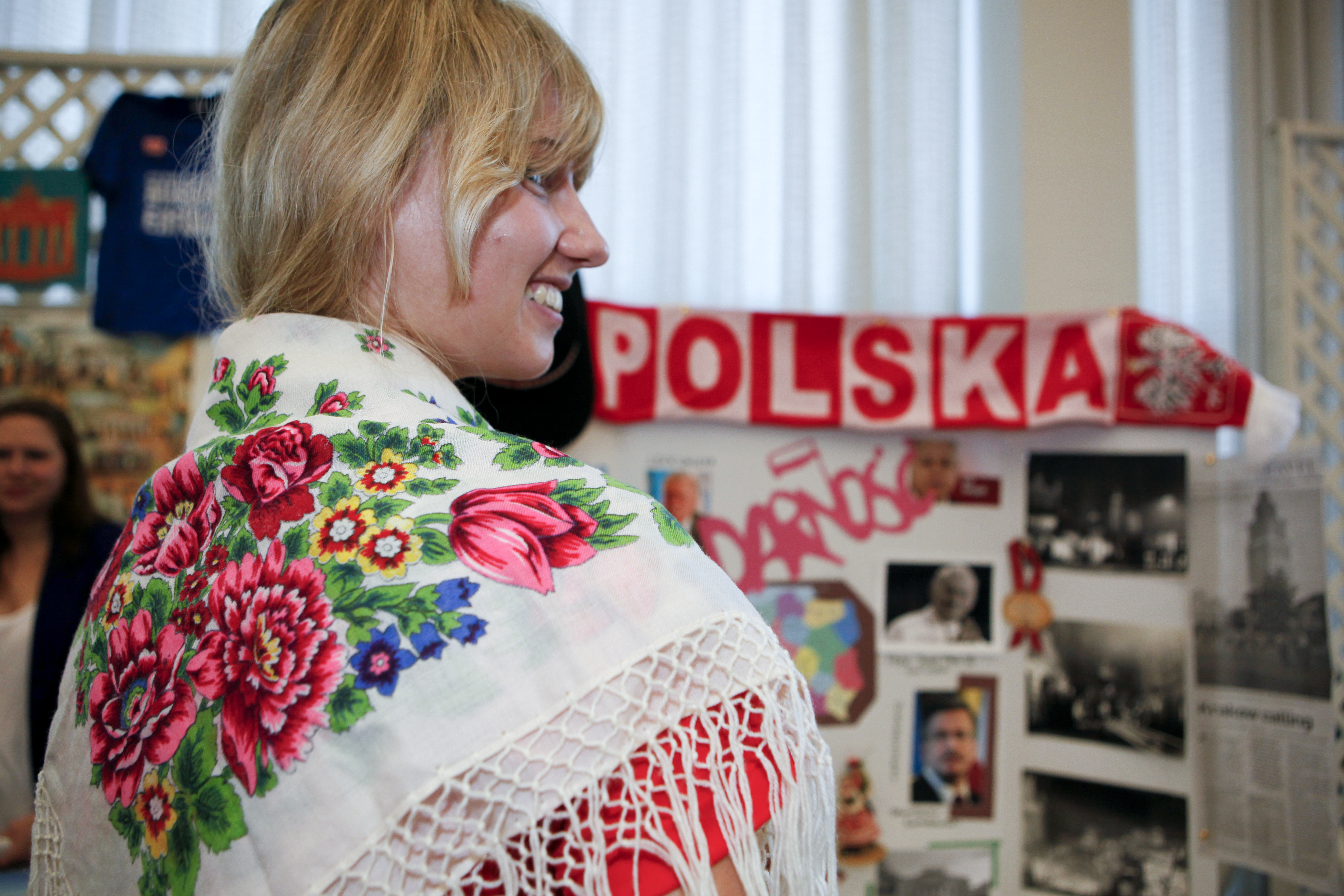Thursday, Oct 27, 2011
Rider launched its School of Liberal Arts and Sciences 50th Anniversary celebration on October 26 with Passport to the World, which presented an opportunity to meet Rider faculty members and students born outside the United States and experience the culture of their native lands, one nation at a time.
by Sean Ramsden
If you could visit one place, where would you go first? Would it be Cuba? Or perhaps someplace further … India, perhaps? Or even Vietnam?
What if you didn’t have to choose? What about if you could traverse the globe in a single afternoon, having your passport stamped by as many nations as you can visit in two hours?
Rider’s commitment to international education is well documented, and for one day, the entire globe was accessible to the University community at the Passport to the World, the official launch of the School of Liberal Arts and Science 50th Anniversary Celebration, on Wednesday, October 26, in the Cavalla Room.
Celebrated in conjunction with Rider’s annual Unity Days and International Week festivities, Passport to the World presented an opportunity to meet Rider faculty members and students born outside the United States and experience the culture of their native lands, one nation at a time.
Boris Vilic, dean of the College of Continuing Studies, proudly answered inquiries about his native Croatia, which he left 18 years ago for the United States. When one student confessed his relative ignorance of the eastern European nation, Vilic carefully explained Croatia’s war-torn past, but also pointed out that the nation’s beautiful beaches attract such wealthy vacationers as computer mogul Bill Gates and actors Brad Pitt and Angelina Jolie.
“Croatia’s population is only about half of New Jersey’s, so I’m not so surprised when students don’t know that much about it,” said Vilic, who is acquainted with the sister of former Nirvana bassist Krist Novoselic, who spent part of her childhood in Croatia. “So, from that perspective, I’m glad to see so many students here; they definitely get something out of it.”
Visitors to the event made stops at booths – each one representing a different country – for an informative presentation of culture, history, and food, before earning a stamp in their “passport booklet,” according to Dr. Patricia Mosto, dean of the College of Liberal Arts, Education and Sciences, and a native of Argentina, who said 34 countries were represented.
Some of the “countries” were staffed by students representing their homelands, such as Katarzyna Nedza ’12, an International Business and Business Administration dual major from Mielec, Poland. Her display featured facts and figures about Poland, as well as photos of iconic Polish figures like former Pope John Paul II, born Karol Wojtyla, and President Lech Walesa, who first rose to fame as the leader of the Solidarity trade union.
In some cases, representatives actually gleaned information from their visitors, as in the case of Nedza, whose display drew the interest of Rider President Mordechai Rozanski.
“I never knew he was from Poland,” said a pleasantly surprised Nedza of Rozanski, who was born there, but raised primarily in Canada.
Steve Macko ’14 was not born or raised in Argentina, but is of Argentine heritage, so he jumped at the chance to represent it at Passport to the World. The Business Administration major was part of a group of students from a Spanish class who divided their research and combined efforts to construct their display on the second-largest country in South America. They were also surprised by some of what they found.
“I would’ve thought that soccer would’ve been their most popular sport, but their national sport is actually a game called pato, which is pretty much a mix of basketball and polo,” said Andrew Nebus ’14, an Accounting major who worked with Macko on the project.
While some of their findings were more sobering, such as the facts surrounding the “Dirty War” of the late 1970s and early ’80s, the team of Macko, Nebus and Andrew Arnold ’14 also discovered the metropolitan sophistication of Buenos Aires, the capital city of Argentina. In fact, part of their display featured a set of decorative tea cups from the city, on loan from Mosto.

